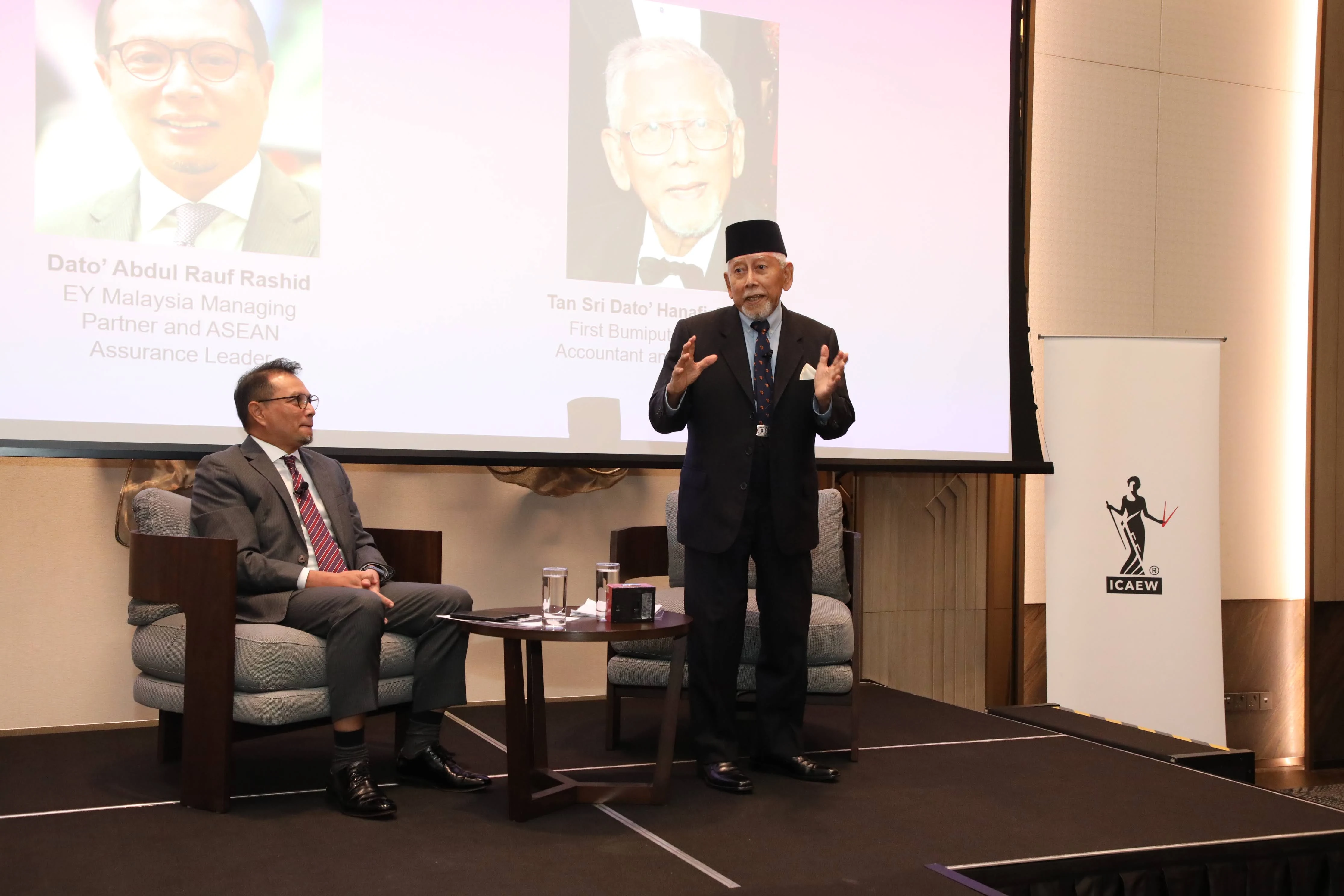Search Blog
Hit enter to search or ESC to close
Trending Now
Driving in Style and Comfort: A Comprehensive User Experience with Hamel Malaysia Ultimate Car Care Services
- Get link
- X
- Other Apps
Home
ICAEW
Institute of Chartered Accountants in England and Wales
Lifestyle
ICAEW: The significant role of chartered accountants in nation building
Home
ICAEW
Institute of Chartered Accountants in England and Wales
Lifestyle
ICAEW: The significant role of chartered accountants in nation building
Zulfadli Bin Yusmar
- Get link
- X
- Other Apps
Reading Time
The role of the Chartered Accountant is increasingly critical to decision making when it comes to nation building. It is a role that is quickly expanding and focused on longer term issues, such as ESG issues, ethics and technology. Purpose-led issues such as diversity & inclusion, and socioeconomic mobility are also quickly becoming top priorities.
 |
| Tan Sri Dato’ Hanafiah Hussain |
According to Tan Sri Dato’ Hanafiah Hussain, the financial landscape looked very different post-Merdeka 1957 but the lessons we can learn remain the same. As history’s first Malay Fellow Chartered Accountant with the Institute of Chartered Accountants in England and Wales (ICAEW) his contributions date back to the birth of Malaysia. At a recent event organised by ICAEW Malaysia he spoke about how the profession needs to keep building trust, and how it can play a critical role in nation building.
His career in public administration began in 1957 and was focused on founding, leading and managing socio-economic restructuring initiatives aimed at catalysing national development. He notes that then and now, financial management and administrative skills are always being recognised and sought after. “Any organisation whether in the private or public sector must know their finances as well as have funds to run the show and accountants are trained to be organised, ethical and good administrators.”
Social Mobility
With an aim to effect national pandemic recovery, today, the overarching objective for the public sector is to reach into communities, make positive impacts, build trust and solve problems. Improving social mobility has never been more important or more challenging. All the inequities that the pandemic has thrown up reveal the negative impacts on socioeconomic minorities. This disproportionate impact on disadvantaged people, regions and groups creates a risk that progress is not just slowed but reversed. It is critical that government allows chartered accountants to be part of the solution. The accountancy profession as part of a wider public sector can be the bedrock of a modern local economy and add value by measuring and monitoring the progress and success of this mission.
We can take inspiration from Tan Sri Hanafiah who took part in the formation of the Federal Land Development Authority (FELDA) and by extension facilitated a better livelihood for the rural poor through geographic resettlement. He is also credited with helping establish the Federal Agricultural Marketing Authority (FAMA), a stationary body with the purpose of eliminating what was then a vicious debt cycle for local farmers by phasing out middlemen. Finally, he also contributed to the formation of the Malaysian Muslim Pilgrimage Sharing Corporation (Tabung Haji) which aimed to offer a better solution to a population who often had to sell all their assets to fund pilgrimages. To this day, Tabung Haji is cited as a successful pioneering model of Islamic deposit-taking. It is also noteworthy to mention the late Prof. Kapten Aziz who had earlier written a working paper urging the Government to set up a financial body to help ease the plight of intended pilgrims.
Diversity
Time and time again, modern research has suggested a strong correlation between diversity of all kinds and enhanced performance, so much so that that the link is almost taken for granted. In addition to results, diverse sectors are also said to be more resilient, agile and overall, just better governed. The Malaysian government has also been aggressively pursuing this agenda and for example, is the first country in the region to set a gender target for boards of locally listed companies.
With the completion of the Tun Razak Exchange, Malaysia's finance sector continues to be supported by a conducive environment and a broad range of innovative investment instruments, a comprehensive financial infrastructure, and global regulatory and legal best practices. This has attracted a variety of players and created a diverse financial sector which has been growing since the 60’s.
Despite the audit and public practice being dominated by foreign owned firms in the 60’s, in 1964, the first local accounting firm, Hanafiah, Raslan and Mohamad (HRM) was formed. As the county’s first Malay CA, Tan Sri Hanafiah was a prime candidate to develop the accountancy profession, specifically the diversification and localisation of public practice.
Integrity
It is arguably even more important for the public that audit, and corporate reporting are functioning effectively for public sector bodies as it is for large private companies. When public sector bodies fail to operate effective internal controls and govern themselves appropriately, it can result in an increase in taxes and the reduction in the quality of essential public services.
In light of recent auditing scandals around the globe, Tan Sri Hanafiah advises accounting professionals, especially auditors to maintain a very high sense of purpose and integrity. “We were so inspired to develop very quickly, and we wanted to be on par with the English. We were committed, and we never thought about corruption and bribery. As far as I am concerned, accountants should never abandon the integrity which the profession emphasises. It is all part and parcel of the development of a professional Chartered Accountant.”
Tan Sri Hanafiah’s enduring legacy is testament to his intrinsic values and higher purpose, such as his zeal for social responsibility and nation-building post-Merdeka and today’s Chartered Accountants stand to learn much from his experience.
You May Also Like
SHEIN’s Inaugural Pop-Up Event in Malaysia is Here!
- Get link
- X
- Other Apps
Anewmax Debuts in Malaysia, Redefining Skincare With Max Results in Minimal Steps
- Get link
- X
- Other Apps











